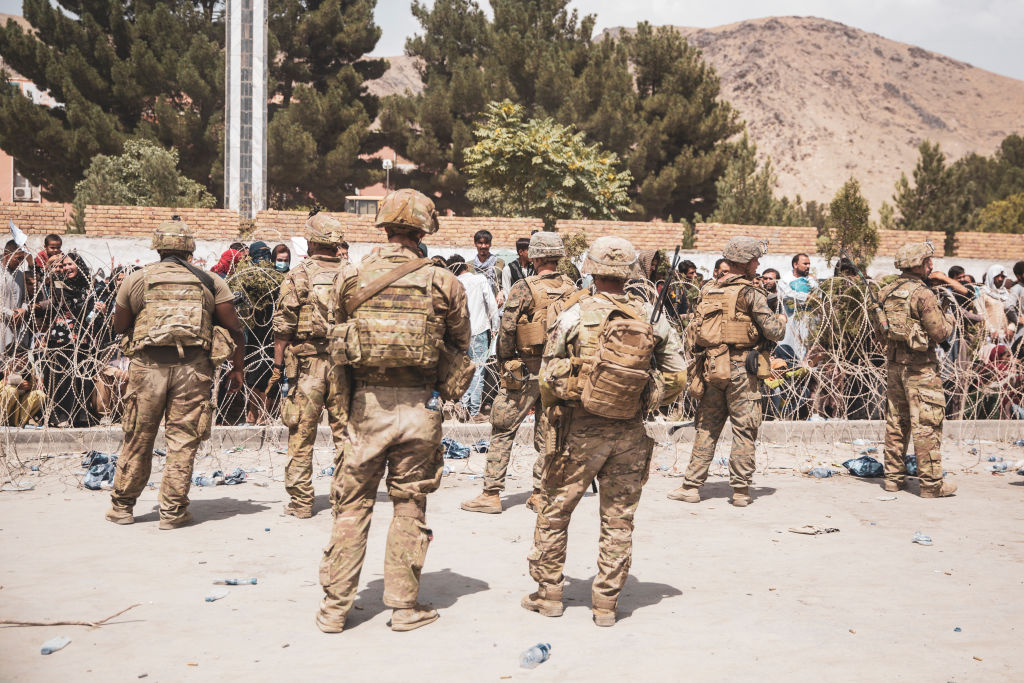Transcript: CIA Director Mike Pompeo on "Face the Nation," March 11, 2018
President Trump's decision to accept an invitation to meet with North Korean leader Kim Jong Un took the world by surprise and kicked off a round of intrigue about how -- and whether -- such a meeting could actually happen.
South Korean officials told Mr. Trump that the North agreed to suspend its nuclear weapons program and missile tests in anticipation of the talks, a concession Mr. Trump attributes to pressure from the international community through punishing sanctions imposed on the North. Critics, however, argue that a presidential-level meeting would only reward North Korea for its aggressive behavior.
CIA Director Mike Pompeo joined us to discuss the intelligence community's assessment of North Korea, whether the U.S. is in contact with the North Koreans and what conditions the administration is setting on the talks.
The following is a transcript of the interview with Pompeo that aired Sunday, March 11, 2018, on "Face the Nation."
MARGARET BRENNAN: To get some insight we turn now to CIA Director Mike Pompeo. Director, welcome to the show. It's been three days since the president accepted this invitation. Has North Korea responded?
CIA DIRECTOR MIKE POMPEO: Well, Margaret, first of all thanks for having me on the show. I think it's important to step back to figure out how we got here. For two decades America whistled past the graveyard and allowed the North Korea-Korean regime to build up the capacity that this administration faced when it came into office.
MARGARET BRENNAN: You said still a few months away from being able to hit the U.S. mainland with a nuclear weapon?
CIA DIRECTOR MIKE POMPEO: That's right. They- they have made tremendous progress over these years. President Trump took a different tact entirely put an enormous global allies -- allies supported pressure campaign on the North Koreans that has had a real impact on the regime, on the North Korean economy and has cost Kim Jong-un to reach out and say that he wants to begin to have discussions on terms that the United States has never achieved before. That's where we find ourselves today and we're going to work hard to make sure that we get what it is the president has set out very clearly for his entire time in office, which is the complete verifiable irreversible denuclearization of North Korea.
MARGARET BRENNAN: Are we in direct contact with North Korea?
CIA DIRECTOR MIKE POMPEO: Think Secretary Tillerson has said that there are channels open.
MARGARET BRENNAN: But we haven't heard back whether Kim will accept what the president has said is his willingness to meet as soon as May?
CIA DIRECTOR MIKE POMPEO: I don't want to get into the conversations that may or may not be taking place. The president has indicated he's prepared to go have an initial discussion on this incredibly important topic and we're preparing for that time.
MARGARET BRENNAN: Now the president accepted this invitation fairly quickly on the promise as you gestured to of a pause in missile and nuclear tests. Why not ask for more? Why not ask for an actual freeze of their program so they don't use diplomacy as a cover to continue development?
CIA DIRECTOR MIKE POMPEO: Well this week we've gotten more than any previous administration, an agreement to not continue testing nuclear weapons and their missile program the things that would put them capable of getting across the threshold, that's critical. He's allowed to continue us to continue our exercises on the peninsula something that's been fought over for decades. And at the same time he has agreed to have a conversation about need- denuclearization. In the end, Margaret, what will turn out is not about words and what someone says. This administration has its eyes wide open and the whole time this conversation takes place the pressure will continue to mount on North Korea. There is no relief in sight until the president gets the objective that he has set forth consistently during his entire time in office.
MARGARET BRENNAN: So you're saying more sanctions but in the meantime North Korea can continue its enrichment, its computer modeling. Things that would allow it to enrich and develop its nuclear program.
CIA DIRECTOR MIKE POMPEO: Well I don't want to comment on that specifically but be sure -
MARGARET BRENNAN: Well they haven't pledged not to.
CIA DIRECTOR MIKE POMPEO: Be sure that's happening today. Be sure that's happening today. And so -
MARGARET BRENNAN: But that could continue happening while we are talking?
CIA DIRECTOR MIKE POMPEO: Our, our efforts, our efforts are to put pressure on them to prevent them from having financial resources to continue to build out these programs. We've been very effective at these things. None of that's going to change while we prepare to have a set of talks between the two people who can make these important decisions.
MARGARET BRENNAN: Are you open to meeting with your North Korean counterpart?
CIA DIRECTOR MIKE POMPEO: I'll leave how these discussions proceed to the president of the United States. He'll set the course and tone for the direction. But I had a chance this weekend to read the histories, the CIA's histories of our involvement in the previous failed negotiations. You can be sure that the CIA won't make those mistakes again. We will be at the center of providing the intelligence picture to the president and to the secretary of state so that each of them can understand how it is we can most likely achieve the president's objective.
MARGARET BRENNAN: When I spoke to Secretary of State Rex Tillerson last month on "60 Minutes," he described what he said was the plan for talks. Let's listen to that.
(VIDEO CLIP) SEC. REX TILLERSON: We do have a plan for negotiations. We have an end state for that. It is a very it's a very step wise process. We're not going to just leap from where we are today to denuclearization. We understand this is something that will have to be done through- through various steps to eventually achieve that final objective of denuclearization. And that will come through a lot of negotiation, a lot of difficult talks. What we have to determine now are were even ready to start? Are they ready to start?
MARGARET BRENNAN: Tillerson said this will be done through him. Is that still the plan?
CIA DIRECTOR MIKE POMPEO: This is a level of discussion the president is going to drive this effort this negotiation but it will take a team to build out the picture so that we put the president in the best position so that he can achieve that outcome.
MARGARET BRENNAN: Because it's unclear though if it's the State Department or your agency that will take the lead. It was your counterpart from South Korea who was at the White House this week.
CIA DIRECTOR MIKE POMPEO: I don't think there's any doubt about who's going to take the lead on this. The president of the United States is going to take the lead.
MARGARET BRENNAN: So the first meeting will be that presidential summit?
CIA DIRECTOR MIKE POMPEO: The president of the United States is going to take the lead in resolving this important conflict with North Korea.
MARGARET BRENNAN: But in terms of laying the groundwork, you can't send your president into that meeting without making sure that you give him the best tools possible. Will you take those first meeting? Will the secretary take those first meetings? How do you lay the groundwork for success?
CIA DIRECTOR MIKE POMPEO: Margaret I'm not going to talk about how the negotiations will proceed on this Sunday show. Rest assured, when the president enters that room with Kim Jong Un, if Kim Jong Un lives up to the four commitments that he has made those four major concessions the president will be fully prepared for his conversation with Kim Jong Un.
MARGARET BRENNAN: In terms of the goal here, when you were in Congress you were harshly critical of the nuclear deal with Iran that the Obama administration negotiated and there are obviously flaws that even they recognized there. But the Iranians did give up the vast majority of their nuclear fuel and their production facilities aren't functioning. Have you set a higher benchmark for these talks since North Korea is farther along with its nuclear program.
CIA DIRECTOR MIKE POMPEO: Yes, Margaret, I think that's the case. Most importantly the conditions are very different. The previous administration was negotiating from a position of weakness. This administration will be negotiating from a position of enormous strength with sanctions that are unrivaled against the North Korean regime. That conversation will proceed very differently. My critique of the Obama administration's JCPOA commitment was that they left the Iranians with a breakout capacity. They had a short time frame that these would these restrictions would remain in place. And North Korea's human capital and enrichment capacity continues to remain in place. Those are...those are all things that present risk to the world and President Obama's, excuse me President Trump is determined to prevent that from happening in North Korea.
MARGARET BRENNAN: So you look at that deal and say, that's a starting point or that's at least what we can reach if not go beyond that with North Korea.
CIA DIRECTOR MIKE POMPEO: Yes ma'am.
MARGARET BRENNAN: Well, North Korea as we've said is further along in its program, you said a few months away from being able to hit the U.S. mainland in January. How much farther have they progressed since January?
CIA DIRECTOR MIKE POMPEO: I don't want to get any, any details on that. Suffice it to say I think a few months is still a fair characterization of where the regime sits today with, with respect to their capacity to reach the United States.
MARGARET BRENNAN: I want to quickly ask you about Syria but before I do that can you tell us anything about those three Americans who are still in captivity in North Korea.
CIA DIRECTOR MIKE POMPEO: No ma'am. I don't have anything to add to that. The State Department is handling those negotiations. And America does have as a priority getting the return of those three American citizens just as quickly as we can.
MARGARET BRENNAN: In Syria there are now reports of napalm being used in addition to chlorine gas attacks just outside Damascus and East Ghouta. Why doesn't the president's red line on chemical weapons apply in these cases?
CIA DIRECTOR MIKE POMPEO: Margaret, the president's made very clear that he won't tolerate chemical weapons usage and he has demonstrated his willingness to respond. In this case, the intelligence community is working diligently to verify what happened to there. I've seen the pictures. You've seen the pictures as well. We have a higher standard to make sure we understand precisely what took place, precisely who did it so that our response can meet the threat. And we're working to develop that. We've seen those reports and the president asked me nearly every day what it is the intelligence community knows about the Syrian regime's use of chemical weapons and who else, the Russians or the Iranians who might be responsible for them.
MARGARET BRENNAN: So for you it's a question of is that the regime or is it the Russians using the napalm and chlorine gas. Just to clarify.
CIA DIRECTOR MIKE POMPEO: We're still trying to figure out precisely what happened in each of these cases.
MARGARET BRENNAN: The Israelis including their prime minister was here this week warning that Iran is unchecked within Syria. Should the U.S. mission change to be able to counter Iran and its proxies like Hezbollah?
CIA DIRECTOR MIKE POMPEO: So I'll leave policy to others. What I can say about what's taking place inside of Syria that the Iranians had a free pass in the previous, previous administration. In fact the JCPOA and the negotiations prevented a United States response. That is they didn't want the previous administration, Ben Rhodes and Obama's team, didn't want to upset the apple cart. This administration has taken a much stronger approach, a much more aggressive posture with respect to countering Iran.
MARGARET BRENNAN: But that's not part of the mission now.
CIA DIRECTOR MIKE POMPEO: But we're working closely and we're working closely with the Israelis to develop a full intelligence picture of what's taking place there so that the president has options to counter that threat.
MARGARET BRENNAN: So what I hear you saying is that the mission is not solely to counter ISIS. You are also looking at Iran and its proxies.
CIA DIRECTOR MIKE POMPEO: President's made very clear we're working diligently to find the right approach to counter the incredible spread of Iranian hegemony throughout the Middle East.
MARGARET BRENNAN: Director, I have so much more to talk to you about but I'm out of time here.
CIA DIRECTOR MIKE POMPEO: Thank you Margaret.
MARGARET BRENNAN: Thank you for coming on the show. It's great to hear directly from you.
CIA DIRECTOR MIKE POMPEO: Thank you ma'am.



